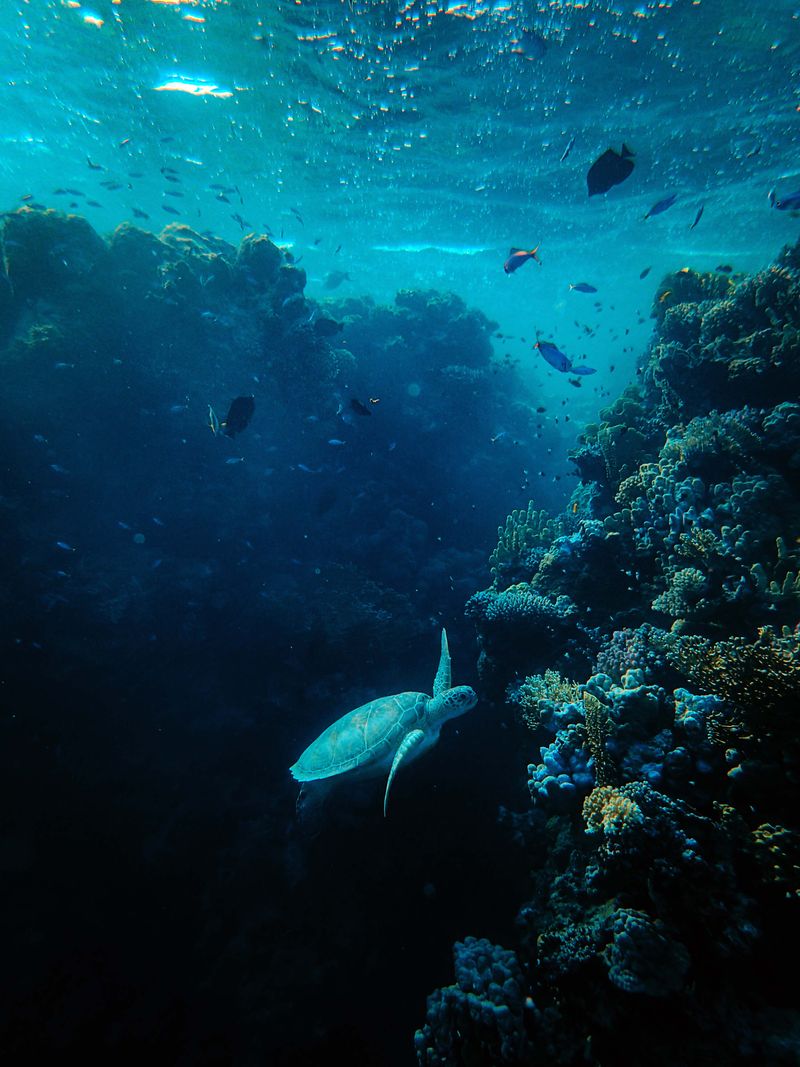Table of Contents
Cumulative threats facing our oceans
A new report titled “30×30: From Global Ocean Treaty to Protection at Sea” has highlighted the urgent need for political action to protect 30% of the world’s oceans by 2030. The report emphasizes the cumulative threats that our oceans face, including ocean warming, acidification, pollution, and the emerging threat of deep-sea mining. These threats are placing increasing strain on ocean ecosystems and require immediate attention and intervention.
The Global Ocean Treaty
In March 2023, the United Nations (UN) agreed on a new Global Ocean Treaty, which has the potential to be a powerful tool in protecting the high seas and achieving the 30×30 goal. However, time is running out to meet this goal, and governments must act swiftly to sign and ratify the treaty. Additionally, governments need to start developing proposals for ocean sanctuaries to establish protected areas using the treaty’s provisions.
Political steps and actions
The report outlines the political steps and actions necessary to establish ocean sanctuaries through the Global Ocean Treaty. It calls for governments to prioritize the signing and ratification of the treaty, as well as the development of proposals for protected areas. These steps are crucial in ensuring the effective implementation of the treaty and the conservation of our oceans.
Interactive map for tracking progress
An accompanying interactive map has been created to track countries’ progress in signing and ratifying the Global Ocean Treaty. This map serves as a tool to encourage governments to take action and create pressure on those that have not yet signed or ratified the treaty. It also visualizes what 30% and 50% ocean protection could look like, highlighting the areas that need priority protection under the treaty.
Fishing activity and threats
The report also sheds light on the increasing fishing activity around the globe, drawing from new data analysis. This information highlights the prevalence of fishing threats and the need for regulations and conservation measures to sustainably manage marine biodiversity. By understanding the extent of fishing activity and its impacts, governments can take informed actions to protect marine ecosystems from overfishing and maintain sustainable fishing practices.
Raising awareness and taking action
The report’s findings underscore the urgent need for global action to protect our oceans. It is not only a matter of environmental conservation but also of safeguarding the livelihoods and well-being of communities dependent on the oceans. The threats facing our oceans are interrelated and reinforce the need for a holistic approach to ocean governance.
Philosophical discussion: Our moral responsibility
The protection of the oceans is a moral imperative. As stewards of the Earth, we have a responsibility to preserve the natural world and its biodiversity for future generations. The oceans are a crucial part of the Earth’s ecosystem, providing habitat to countless species and serving as a source of sustenance and economic opportunities for millions of people.
Moreover, the oceans play a vital role in regulating the global climate system. They absorb large amounts of carbon dioxide and help mitigate the impacts of climate change. By protecting the oceans, we are not only preserving the beauty and diversity of marine life but also safeguarding our own future.
Editorial: Urgency and cooperation
The report’s call for urgent action should be heeded by governments, international organizations, and individuals alike. Protecting 30% of the world’s oceans by 2030 is an ambitious but necessary goal. It requires international cooperation, political will, and effective governance to ensure the implementation of the Global Ocean Treaty and the establishment of protected marine areas.
Governments must prioritize the ratification of the treaty and allocate resources for the development and management of ocean sanctuaries. Additionally, there is a need for increased investment in research, monitoring, and enforcement to address the various threats facing our oceans.
Advice: Individual contribution
While the responsibility for protecting our oceans lies with governments and international bodies, individuals can also make a difference. Adopting sustainable practices in our daily lives, such as reducing single-use plastic consumption, supporting sustainable fisheries, and advocating for responsible tourism, can contribute to the conservation efforts.
Furthermore, raising awareness about the importance of ocean protection and engaging in local and global initiatives can amplify our impact. Every individual action adds up, and collective efforts are crucial in addressing the cumulative threats facing our oceans.
We have the knowledge, tools, and opportunities to protect our oceans and ensure their long-term health. It is our collective responsibility to act now and secure a sustainable future for our oceans and the entire planet.

<< photo by Francesco Ungaro >>
The image is for illustrative purposes only and does not depict the actual situation.
You might want to read !
- Frozen in Indecision: Antarctic Ocean Commission Continues to Fail on Ocean Protection Plan
- “The Impact of Whale Conservation on the Health of Our Oceans”
- “From Overfishing to Microplastics: Why Tuna Requires Urgent Rethinking”
- Safeguarding Earth’s Lifeline: The Imperative of Protecting the Congo Rainforest
- Greenpeace Urges Global Stocktake Against Paris Climate Agreement Goals
- Global Consequences: The Looming Catastrophe of G20’s Inaction on Climate and Debt Crises
- Deep Sea Mining: A Ticking Time Bomb for Marine Ecosystems
- The Path to a Global Ocean Treaty: Reflecting on Progress and Future Steps